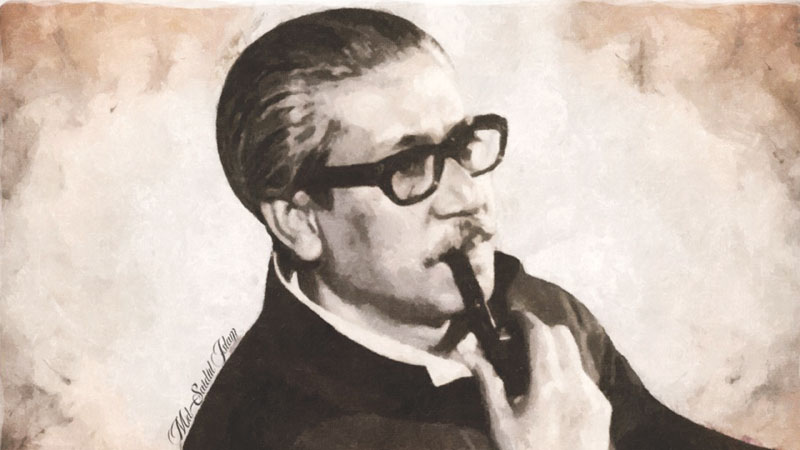Mujib was arrested and taken to West Pakistan after midnight from Tejgaon Airport on a PAF C-130 flight right under the noses of ATC Officer Squadron Leader Khaja, Senior Operations Officer Wing Commander Khademul Bashar and Director of Airport and Flight Security Squadron Leader M. Hamidullah Khan. All were on duty that night due to the state of emergency. Mujib was moved to West Pakistan and kept under heavy guard in a jail near Faisalabad (then Lyallpur). Many other League politicians avoided arrest by fleeing to India and other countries. Pakistani General Rahimuddin Khan was appointed to preside over Mujib’s military court case in Faisalabad, the proceedings of which have never been made public.
The Army’s campaign to restore order soon degenerated into a rampage of terror and bloodshed. With militias known as Razakars, the army targeted Bengali intellectuals, politicians and union leaders, as well as ordinary civilians. Due to the deteriorating situation, large numbers of Hindus fled across the border to the neighbouring Indian states of West Bengal, Assam and Tripura. The East Bengali army and police regiments soon revolted and League leaders formed a government in exile in Kolkata under Tajuddin Ahmad, a politician close to Mujib. A major insurgency led by the Mukti Bahini (Freedom Fighters) arose across East Pakistan. Despite international pressure, the Pakistani government refused to release Mujib and negotiate with him. Most of the Mujib family was kept under house arrest during this period. General Osmani was the key military commanding officer in the Mukti Bahini, which was a part of the struggle between the state forces and the nationalist militia during the war that came to be known as the Bangladesh Liberation War. Following Indian intervention in December, the Indo-Pakistani War of 1971, the Pakistani Army surrendered to the joint force of Bengali Mukti Bahini and the Indian Army, and the League leadership created a government in Dhaka which was called the Mujibnagar Government.
Upon assuming the presidency after Yahya Khan’s resignation, Zulfikar Ali Bhutto responded to international pressure and released Mujib on 8 January 1972. After release from prison, Bhutto and Mujib met in Rawalpindi. In that meeting, Bhutto proposed some links between Pakistan and Bangladesh. However Mujib said he could not commit to anything until he visited Bangladesh and talked to his colleagues. He was then flown to London where he met with British Prime Minister Edward Heath and addressed the international media at Claridge’s Hotel. Mujib then flew to New Delhi on a Royal Air Force (RAF) jet aircraft provided by the British government to take him back to Dhaka. In New Delhi, he was received by Indian President Varahagiri Venkata Giri and Prime Minister of India Indira Gandhi as well as the entire Indian cabinet and chiefs of armed forces. Delhi was given a festive look as Mujib and Gandhi addressed a huge crowd where he publicly expressed his gratitude to Gandhi and “the best friends of my people, the people of India”. “From New Delhi, Sheikh Mujib flew back to Dhaka on the RAF jet where he was received by a massive and emotional sea of people at Tejgaon Airport.”

